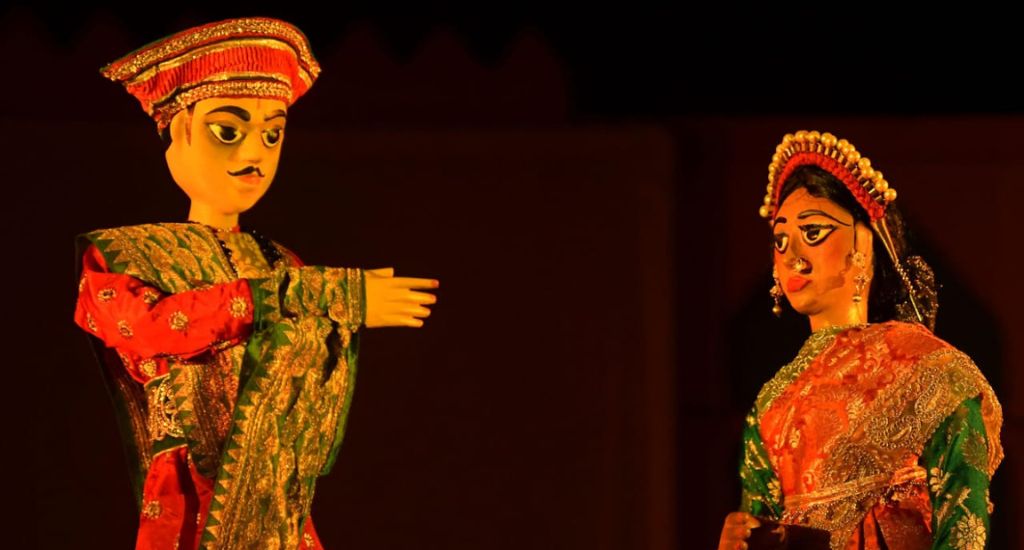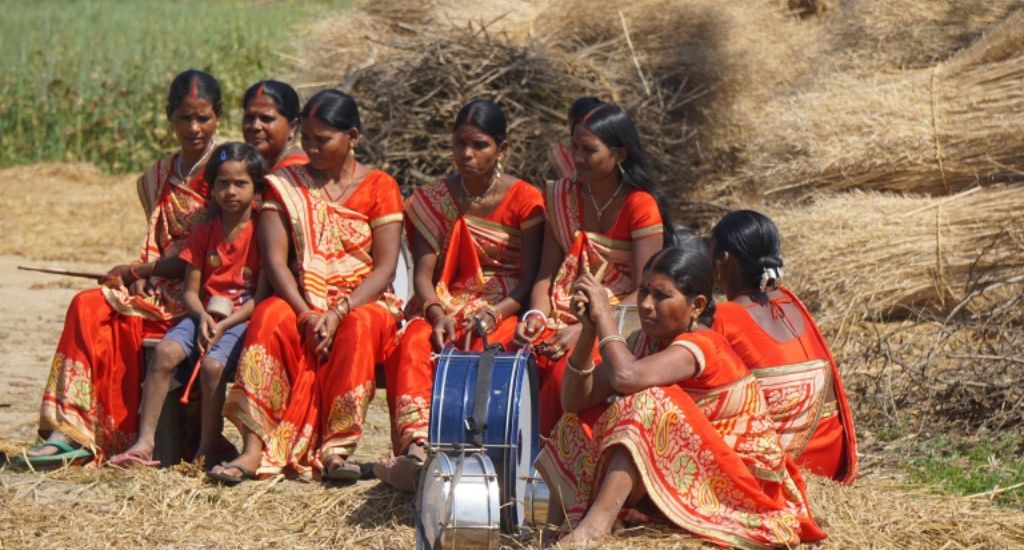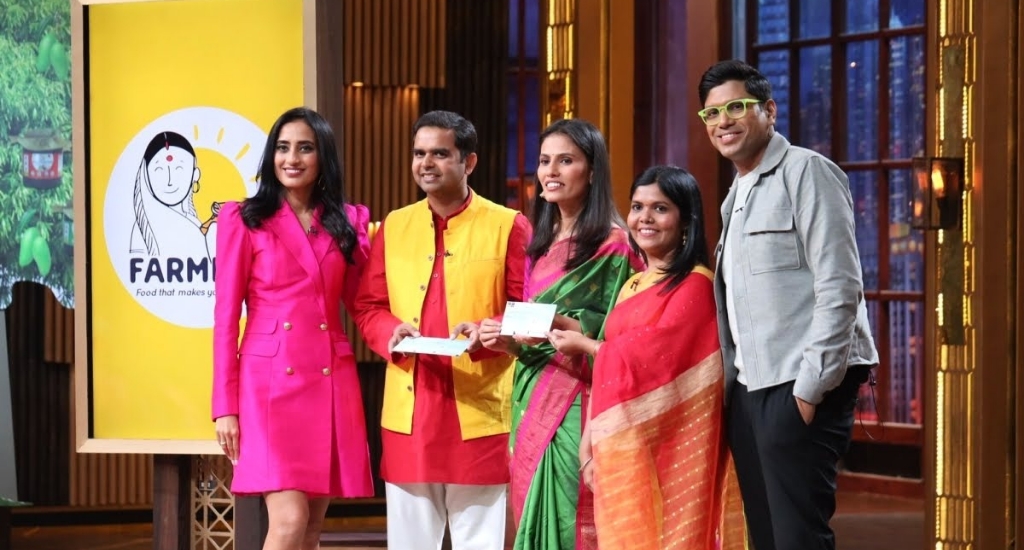Slight in build, clutching her two-month-old baby, 23-year-old Poonam Devi is unwavering in purpose. She is keenly aware of the expectations the women in her Tarkhutta Panchayat have of her as their elected mukhiya (village council chief). Tarkhutta, 280 km from state capital Ranchi, is a village in the Poriyahat administrative block in Godda district of Jharkhand.
Poonam is one of five Panchayat mukhiyas, seven Panchayat Samiti members, and 72 ward members who won the local elections in 2015 due to the resolve of women’s collective organizations. In all, 86 women members of self-help groups (SHGs) won in the 2015 Panchayat elections in Poriyahat block. Shanti Murmu is the elected deputy and among a handful of Santhals in a predominantly Other Backward Classes community.
Poonam is a member of the Bhagvati Self Help Group. She joined the SHG in 2013. It is one of the SHGs that joined hands with other SHGs to form the Ekta Mahila Vikas Manch (EMVM), a women’s federation at the block level, which is evolving into a force to be reckoned with, in local politics.
Personal and political struggle
Poonam has waged a personal and political struggle to emerge as a young woman leader. Her victory was made possible by the support of several older SHG women in her village, who formed a committee of eight members, comprising Nootan Devi, Jayanti Devi, Sangita Devi, Shanti Devi, Shanti Murmu, Paarvati Devi, Jhuma Devi and Tilotma Devi. There was support of a few older men, who believe in women’s equality in this village, where caste and gender discrimination are still very rigidly upheld.
Poonam and Shanti’s victory is a story of how collective resolve successfully challenged patriarchal structures and corrupt governance practices. It demonstrated how a unique form of inter-generational support — between the older generation of SHG women and their younger peers -reshaped the local political and social structure.
With tears forming in her eyes, Poonam recounted the poverty in which she grew up and her struggle to be educated. She would ride her bicycle over long distances and unpaved roads to attend a school located many kilometers away. She studied late at night after having completed all her household and agricultural tasks. “I gave tuitions to pay for my costs and supported myself. I know what it is to struggle, and I understand the troubles and problems of women in my village. I have learnt to listen to their needs and concerns and it is because of their support that I am a mukhiya today.”
Poonam is currently studying to complete her B.A. degree at Deogarh, located 65 km from Tarkhutta. Married a few years ago, her illiterate husband supports her in her new journey.
Help in the journey
Poonam’s journey to becoming a mukhiya representing women’s interests was made possible by the SHGs that were supported by Professional Assistance for Development Action (PRADAN), a 30-year-old non-profit working in the areas of livelihoods and rural transformation. PRADAN more recently has focused on building women’s capacities to participate in local governance and to advance their rights and access their entitlements.
Following an intensive training program, the women members of EMVM organized to make sure that their concerns and needs be addressed in the panchayat elections of 2015. While there were older and more experienced women leaders such as Jayanti Devi, the women selected Poonam to run for the mukhiya’s post. She was literate and, being poor like them, they believed she understood and would represent their interests. Though initially nervous, Poonam agreed to take on the challenge when her family agreed to support her. The SHG collective assured her family that they did not have to spend any money and they would meet the expenses for the elections and campaigning.
Oath of integrity
Each SHG committed to providing Rs 200 for the campaign initially and it was subsequently raised to Rs 500. As many as 23 SHGs from the Tarkhutta Panchayat collected Rs 11,500 for use in the election campaign. In return for their support, Poonam took an oath to work with integrity. Women leaders like Jayanti Devi accompanied Poonam to file her candidacy as a demonstration of support. They went from door to door to canvas for her and other women candidates.
On election day, anticipating the resistance and hostility to their candidates, the SHG members of Tarkutta Panchayat placed four women and two men at each booth to ensure that votes would be cast freely and fairly. Alerted to the fact that the opposition candidate at the Titiyantr booth had hired goons, the SHG members were ready to confront any violence. A clash ensued. Jayanti was severely hit on the head and eight other SHG members were wounded. The women called the local police to stem the violence. Sangita Devi and her supportive family were virtually placed under house arrest for a few days by supporters of the opposing candidate.
Despite the attack on SHG members and their supporters, Poonam and Shanti won their electoral contests. This hard fought victory gave the members great self-confidence and heightened their stature in the village. “Apni panchayat me keval main hi nahi, sab mukhiya hain (In our panchayat, not just me, all are mukhiyas),” says Poonam.
Implementing mandate
Poonam is implementing her mandate. She has already been successful in obtaining ration cards and elderly and widow pensions for members of her village. She has authorized the construction of 13 small and four large ponds under the government’s rural jobs guarantee program and is working to have a paved road brought to the village.
“I have given women more information about the various schemes they may access. I have had hand pumps repaired and I am now working on getting households gas connections,” she told VillageSquare.in. “Our panchayat has received Rs 6.5 lakhs for several development projects including the construction of a sitting place, a meeting hall, roads and toilets.”
Poonam and Shanti have a lot more work ahead as the federation members have many demands. “We want water, pucca (brick and mortar) houses and sanitation,” says Jayanti. “We have set our sights on achieving this.” Poonam shares with them the list for the Indira Awas Yojana (a government housing scheme) that she has just received.
As Poonam leaves the meeting to attend to her duties, the women and men at the meeting know that she, with their strong support, will bring benefits to their community. Jayanti firmly says, “We are monitoring Poonam’s commitment and she will have to deliver to us our dreams of change.”
“Poonam is our Rani of Jhansi,” Bhamshankar Singh, Sangita Devi’s progressive father, says with pride, referring to the indomitable insurgent who fought and died in India’s first war of independence in 1857.
Jael Silliman is a women’s rights activist. She has authored several books including Undivided Rights: Women of Color Organizing for Reproductive Justice, and Jewish Portraits, Indian Frames: Women’s Narratives from a Diaspora of Hope.
Suneeta Dhar is a women’s rights activist and advisor to Jagori, a non-profit organisation working in the area of gender issues. She was earlier a board member of South Asia Women’s Fund and a manager at United Nations Development Fund for Women.



